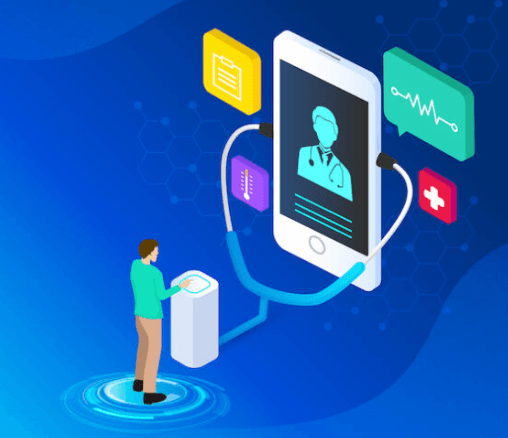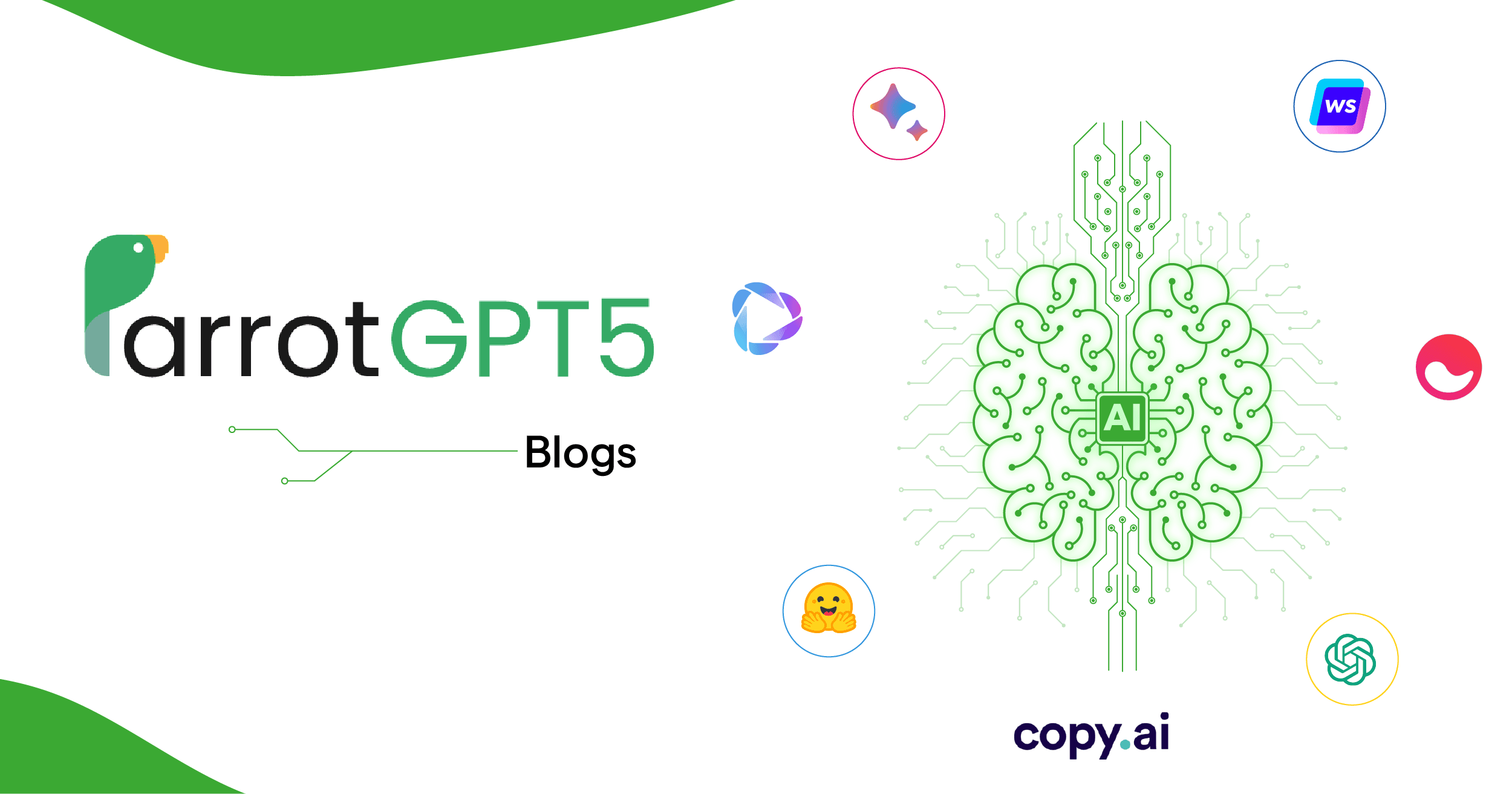Introducing
In the swiftly evolving world of medical technology, ChatGPT's role within healthcare has become increasingly crucial. Renowned for its sophisticated language processing capabilities, ChatGPT assists in various tasks ranging from patient consultation to complex clinical decision support.
The current landscape of ChatGPT healthcare use cases reveals a tool that enhances the interactions between doctors and patients and analyzes massive datasets, bringing about more informed and timely decision-making.
As ChatGPT in healthcare continues to grow, it is altering traditional approaches to medical care, emphasizing efficiency and tailored patient interactions. Such advancements underscore the increased integration of AI technologies in enhancing healthcare delivery and management.
In this article, we will learn about ChatGPT healthcare use cases and how quality care is becoming more accessible.
What Makes ChatGPT a Perfect Model for Medical Applications?
The advent of AI in healthcare is being led by applications such as ChatGPT, which is proving transformative in medical domains. ChatGPT's healthcare use cases prove its suitability for the field. Here’s why the ChatGPT model is suitable for medical applications:
- Real-Time Interaction: Patients benefit from ChatGPT's ability to respond immediately to healthcare inquiries, which is essential for timely advice and support.
- Advanced NLP Capabilities: With its superior natural language processing, ChatGPT can understand and emulate human conversation, making interactions more intuitive for users.
- Large-Scale Data Analysis: In healthcare, where data is abundant and complex, ChatGPT can analyze vast volumes of text swiftly, assisting in uncovering novel insights and associations between diseases and treatments.
- Diagnostic Support: Studies like those conducted by Rao's and Hsu-Ju Kao's teams show impressive accuracy in final diagnosis and clinical management suggestions, indicating ChatGPT's potential in assisting with clinical decisions.
- Learning from Diverse Sources: Trained on a broad set of medical knowledge, ChatGPT is equipped to generate informative responses that can aid both patients and doctors.
- Enhancing Medical Education: By providing up-to-date medical research results and expert opinions, ChatGPT is a valuable tool for medical education and learning.
- Patient Engagement: ChatGPT can help in preliminary diagnosis and improve the overall patient experience by engaging patients through intelligent conversations.
However, it's crucial to emphasize medical professionals' role in validating ChatGPT's information for accuracy. Next up, we’ll see a landmark ChatGPT healthcare use case.

How ChatGPT Found the Answer to a Mother’s Question When Doctors Couldn't
In an era where ChatGPT for healthcare transforms patient experiences, a story highlights AI's impact on diagnosing complex conditions. After years of uncertainty and countless doctor visits, a mother used ChatGPT healthcare use cases to help diagnose her son's undiagnosed symptoms.
Alex had been suffering from chronic pain and other puzzling symptoms that baffled 17 doctors over three years. Desperate for answers, she detailed his symptoms and medical history to ChatGPT.
The AI suggested a diagnosis of tethered cord syndrome, a condition none of the specialists had considered. This new insight led her to a specialist who confirmed the diagnosis, marking a new chapter in Alex's treatment journey.
This story shows how ChatGPT in healthcare can sift through vast amounts of data, offering valuable insights that might be missed in traditional diagnostics. While it doesn't replace medical professionals, ChatGPT can enhance diagnostic processes, helping to find answers in difficult cases, just like it did for Alex.
This was just one of the successful ChatGPT Healthcare use cases in which a common user received a life-saving response. Let’s explore the professional implementations.
Exploring Potential Use Cases for ChatGPT in Healthcare
The medical field is always advancing, and AI, like ChatGPT, plays a big part. Let's look into how ChatGPT can shake things up in healthcare.
- Triage and Symptom Assessment: ChatGPT can transform triage systems by assessing patient symptoms described in their own words, helping determine the urgency of medical attention needed, one of the promising ChatGPT healthcare use cases.
- Virtual Healthcare Assistance: Serving as a virtual assistant, ChatGPT plays a significant role in healthcare by providing personalized health management advice and engaging in an area where ChatGPT for healthcare is highly beneficial. Chatbots integrated with GPT models are a popular tool for healthcare bookings, lead generation, & FAQ resolution.
- Mental Health Support: ChatGPT offers a unique advantage in healthcare by providing immediate mental health support and guidance. This represents a critical ChatGPT healthcare use case where technology meets empathy.
- Support in Clinical Decisions: ChatGPT assists healthcare professionals by offering data-driven recommendations for diagnosis and treatment, showcasing the potential of ChatGPT for healthcare to improve patient outcomes through AI insights.
- Medical Education: By providing accurate and instant answers to medical queries, ChatGPT enhances medical education, illustrating a key ChatGPT healthcare use case in academic settings.
- Remote Patient Monitoring: ChatGPT's ability to monitor and analyze patient-reported symptoms remotely represents a growing ChatGPT healthcare use case, crucial for managing ongoing health conditions effectively.
- Management of Chronic Diseases: ChatGPT for healthcare assists patients with chronic diseases in managing their health by providing individualized lifestyle and medication recommendations.
- Overcoming Language Barriers: ChatGPT bridges communication gaps in healthcare by providing multilingual support, a critical ChatGPT healthcare use case for non-English speaking patients. With the addition of GPT-4o, the translation is more accurate and fast.
- Streamlining Administrative Tasks: ChatGPT optimizes healthcare operations by efficiently handling appointments, billing, and insurance tasks, highlighting a practical ChatGPT for healthcare applications in administration.
- Preliminary Health Consultation: As a symptom checker and health advisor, ChatGPT plays a key role in healthcare by guiding individuals through preliminary health assessments, a notable ChatGPT healthcare use case for early detection and advice.
These cases show how GPT models can be integrated into various aspects of healthcare to enhance patient care, support medical professionals, and improve administrative efficiencies.
Limitations and Ethical Considerations of ChatGPT in Healthcare
Let's talk straight. ChatGPT in healthcare is smart. But like all tools, it's not perfect and comes with its own bag of issues we must handle with care—especially regarding health.
The Crucial Role of Human Expertise: AI as a Tool, Not a Replacement
ChatGPT in the healthcare industry has various uses but only serves as an assistant to human resources. It can’t replace doctors with hands-on experience. It can give support, offer suggestions, but at the end of the day, humans make the big calls. After all, a machine doesn't understand human feelings; sometimes, that's just what you need to improve.
Data Bias and Accuracy Concerns: Ensuring Reliable AI
Alright, now let's talk reliability. Just because it's AI doesn't mean it's always right. ChatGPT for healthcare relies on heaps of data to learn and get better.
This lays down a fatal flow: wrong training data equals wrong output.
That's why clean, unbiased data is key for AI. Keeping ChatGPT in the healthcare industry honest means double-checking its advice to ensure it gives everyone a fair and accurate helping hand.
Ethical Considerations: Transparency and Patient Privacy in AI-driven Healthcare
Health is one of the most private topics for people, so it is crucial to secure the healthcare records of all patients. With AI ChatGPT in healthcare, there are many questions about keeping things private.
Sure, AI needs information to work, but where is the line? We must ensure transparency and guard that data like treasure.
Keeping ChatGPT healthcare use cases ethical means making everything transparent.
The Future of ChatGPT in Healthcare: Collaboration and Innovation
The future is bright with ChatGPT in healthcare, where AI assists doctors, enhancing care through innovation and technology collaboration.
Integrating AI with Existing Healthcare Systems
First, let's discuss getting ChatGPT for healthcare synced with what we already have in hospitals and clinics. This AI can sift through mountains of health records in a flash, spotting important details that might take humans hours to find.
The trick is to seamlessly integrate this technology into our current systems so that it feels more like a natural extension rather than a bulky add-on.
When done right, this integration can make healthcare more efficient and responsive—imagine getting health tips or appointment reminders tailored just for you, directly to your phone.
The Potential for Early Disease Detection and Prevention
Here's where things get really exciting—using ChatGPT in healthcare could be a game-changer in catching diseases early. This tech has the knack for spotting patterns and signals that might be easy to miss at first glance.
It's like having a detective combing through your health data, searching for clues that something might be off. The earlier we catch these hints, the better the chances of stopping diseases before they fully develop.
This proactive approach, powered by AI ChatGPT in healthcare, could lead to healthier lives and less strain on healthcare systems.
Collaboration Between Doctors, Researchers, and AI Developers
Now, for the magic to happen, doctors, researchers, and the brains behind the AI, including ChatGPT in the healthcare industry, must join forces. Doctors and healthcare workers know the ins and outs of patient care.
Researchers understand disease complexities, while AI developers build revolutionary data tools. This partnership, with ChatGPT healthcare use cases, could lead to groundbreaking medical breakthroughs.
Conclusion
As we look ahead, it's clear that ChatGPT isn't just another tech buzzword—it's a beacon of hope for transforming how we manage health and wellness.
With its ability to learn, understand, and interact human-like, ChatGPT in healthcare is a powerful ally for providing better, personalized care. Here's why this tech is truly impactful.
ChatGPT healthcare use cases are as diverse as they are promising. From crunching numbers to offering support and advice, it is like Asclepius (Greek god of medicine), bestowing healing wisdom to the needy. It's versatile, ready to assist in various ways, and always just a question away.
Whether it's helping doctors make more informed decisions or giving patients a clearer understanding of their health, ChatGPT for healthcare is stepping up to the plate.
Frequently Asked Questions (FAQs)
What are the top ChatGPT healthcare use cases?
Top ChatGPT healthcare use cases include symptom analysis, patient education, mental health support, personalized treatment recommendations, and streamlining administrative tasks for improved efficiency.
Is ChatGPT truly uncovering cures missed by doctors?
There's no evidence of ChatGPT directly finding cures doctors missed. However, it can analyze vast datasets and identify potential treatment links humans might overlook.
How can ChatGPT be used in medical research?
ChatGPT can analyze large medical research datasets to identify patterns and suggest new research directions or drug repurposing opportunities.
Is using ChatGPT in healthcare ethical?
Ethical considerations include data privacy, transparency in AI-driven decisions, and avoiding biases in the data used to train ChatGPT.
Can ChatGPT do medical diagnosis?
ChatGPT Healthcare use cases include providing diagnostic insights and suggesting potential conditions, but it should not replace professional medical evaluations and diagnoses.
Can you use ChatGPT to write medical notes?
Yes, a key ChatGPT Healthcare use case is writing medical notes, assisting clinicians in accurately documenting patient information and streamlining administrative tasks.



